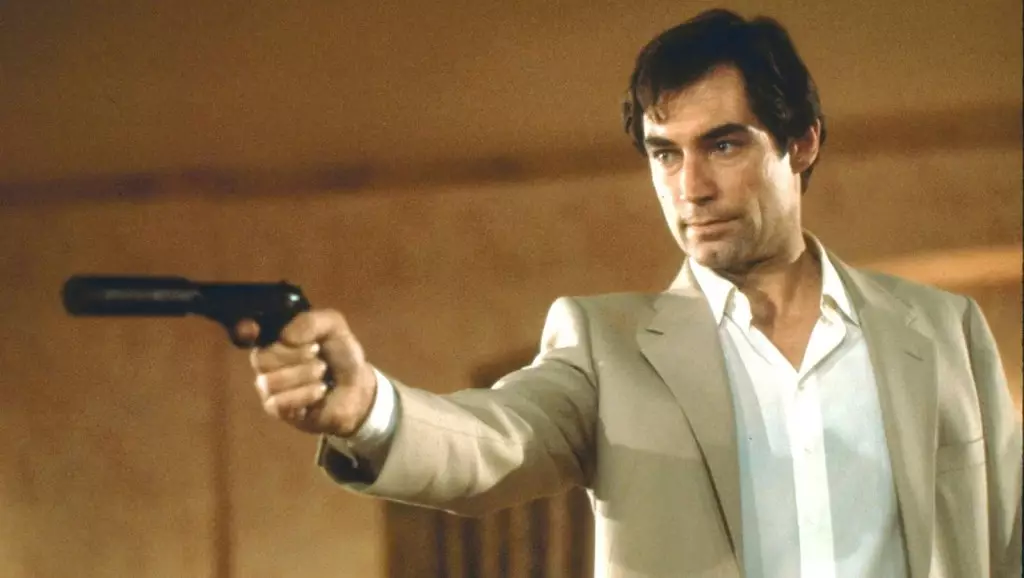In an era where the dynamics of cinema are rapidly changing, the iconic James Bond franchise finds itself at a pivotal junction. Recently, Timothy Dalton, who portrayed 007 in “The Living Daylights” and “Licence to Kill,” expressed his dismay about the control of Bond shifting to Amazon following their substantial $1 billion acquisition of MGM Studios. This transaction, which allows the tech giant to steer the creative direction of one of Britain’s most cherished cinematic figures, has sparked both excitement and concern across the film industry.
Dalton’s sentiments resonate deeply with many who view Bond not just as a character but as a symbol of British cultural heritage. His comments in an interview with The Daily Telegraph highlight a fear that the essence of what makes Bond uniquely British could be compromised under the oversight of an American corporation. When Dalton remarked, “It is one of the few wonderful stories we’ve got in film that is British,” he struck a chord with a broad audience who value the franchise’s deep roots in British storytelling.
Central to Dalton’s concerns is the legendary figure of Barbara Broccoli, who has played an essential role in the stewardship of the Bond franchise. Since taking over from her father, Albert R. Broccoli, she has maintained a delicate balance of respecting Ian Fleming’s original vision while also adapting to contemporary audiences. Dalton emphasized Broccoli’s exceptional capabilities, stating, “Barbara is one of the best women in the whole world. I think she’s fantastic.” This acknowledgment not only reflects respect for her tenure but also a worry that her unique touch will be lost amidst corporate strategies prioritizing market trends over tradition.
With Bezos and Amazon MGM now at the helm, questions emerge about how they will interpret Bond’s character and stories. Dalton’s apprehension about potential “endless spin-offs” speaks to a larger trend in the entertainment industry, where beloved characters sometimes become entangled in a web of commercialization, potentially diluting their impact. The risk here is stark: could Bond become just another piece of content rather than remain a classic narrative steeped in British culture?
As the industry anticipates the next casting choice for Bond, speculation has reached a fever pitch since Daniel Craig’s departure from the role after “No Time to Die.” Names like Aaron Taylor-Johnson, James Norton, and Idris Elba have circulated as potential candidates, but they come with different expectations and risks. Dalton stressed that finding a British actor is crucial, mirroring the sentiment that Bond must retain his identity as a quintessentially British figure. With Jeff Bezos himself engaging in discussions about casting on social media, it seems that not only will the character’s portrayal be subject to scrutiny, but the selection process could also diverge from the traditional methods that have governed film casting historically.
The excitement around new actors who might take on the role is palpable, yet it is intertwined with anxiety about how genuine the portrayal will remain given the new corporate backdrop. When Dalton discusses the “damn fine series of movies,” he invites us to reflect on the history and legacy of Bond, a history that must be approached with reverence, especially as a new era approaches.
As we stand at this crossroads, it is paramount to consider the implications of corporate control over beloved franchises like Bond. Amidst the evolving landscape of Hollywood, where corporations wield significant influence, the sanctity of storytelling must not be sacrificed for profit. Dalton’s warnings serve as a reminder that the heart of cinema lies in its ability to tell stories that move us, stories that connect us to our culture and heritage.
The upcoming transition of James Bond under Amazon’s control will undoubtedly bring fresh opportunities and challenges. While excitement for potential new narratives is wholly legitimate, the fear of losing the franchise’s British essence looms large. As the legacy of Bond continues to develop, fans and stakeholders alike must advocate for a future that honors its storied past while navigating contemporary trends. A careful stewardship reflecting tradition could yield a Bond that resonates with both old fans and new audiences, honoring the character’s enduring legacy.

